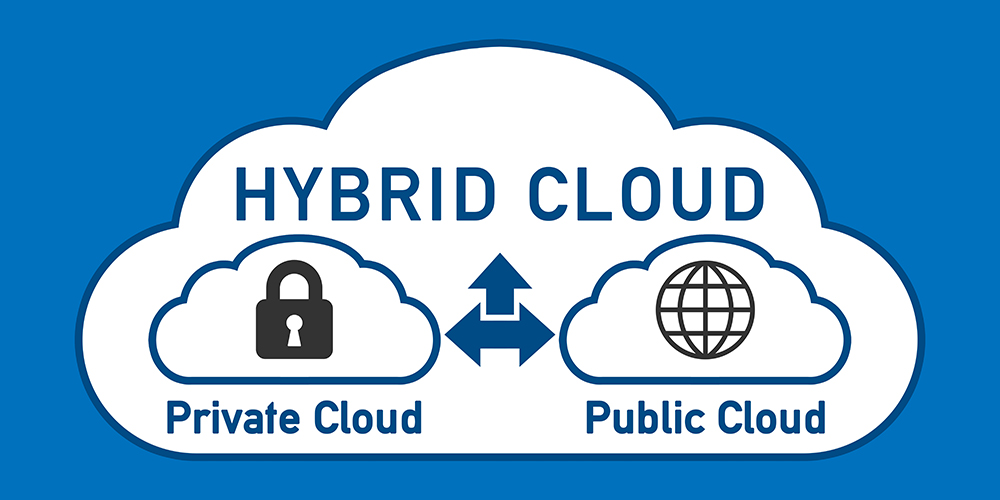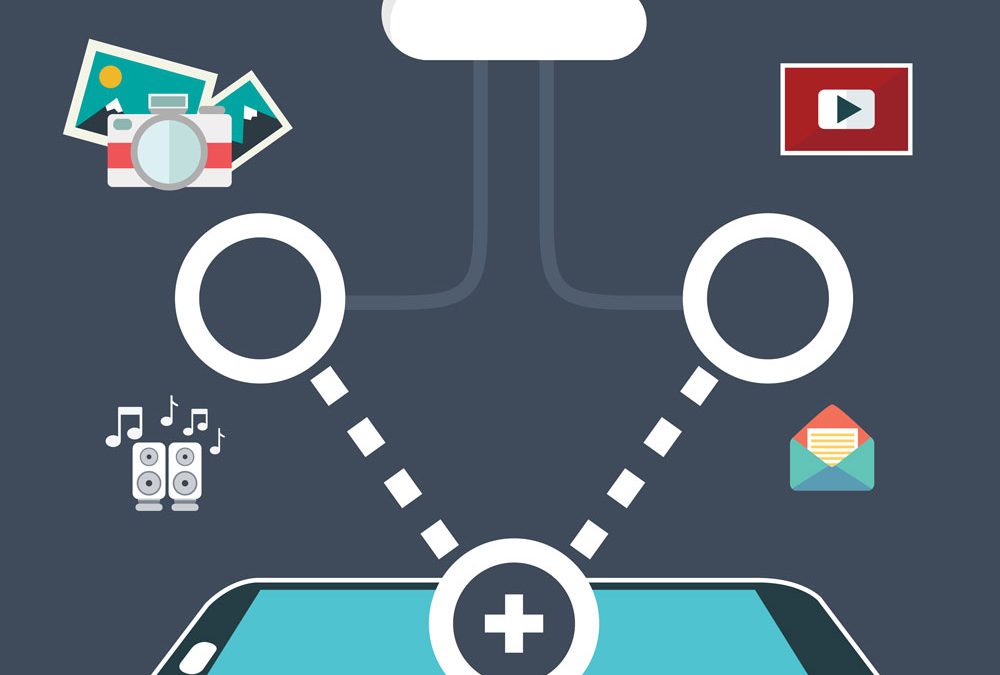
Jun 12, 2020 | SMB Technology, SMB Technology, SMB Technology, SMB Technology, Technology News
Cloud computing, once an emerging technology, is now common, and is proving valuable in this time of remote work resulting from the COVID-19 quarantine. To access data and applications, all that is needed is a computer and an Internet connection. Each type of cloud environment–public, private, and hybrid–comes with its own benefits and considerations. Read on to learn more about what each offers, and to consider which is best for your business. Benefits and Considerations of Public and Private Cloud Environments While all cloud environments have benefits, your business’ needs will impact which one you choose. Public cloud, often used by businesses, schools, and government organizations, is the least expensive, and is easily accessible. All that’s needed is a computer with access to the Internet. Public cloud, like other cloud environments, is flexible and easily scalable, depending on how much demand your business receives. A consideration is sharing computing resources with other entities, and how much bandwidth is available. Another question to ask your IT professional is security of data during migration to the public cloud, and once it resides there. Private cloud environments, in contrast, can help a company keep its data and applications secure, since the public cloud environment is used exclusively by one organization. For organizations needing to follow data-protection regulations, they might ask about private cloud. Private cloud has the same flexibility as public, with added security. Considering a Hybrid Cloud Environment A hybrid cloud environment is a combination of on-premise, third-party, public cloud and private cloud, with some infrastructure owned and used by a business, and some owned by a cloud service provider. A...

Aug 7, 2018 | SMB Technology, SMB Technology, SMB Technology, SMB Technology, Technology News
Cloud computing has become more and more popular over the last several years, with that popularity continuing into 2018 and 2019. According to a report by the International Data Corporation (IDC), public cloud services will grow from nearly $70b to more than $141b in 2019. SaaS is likely to be the key consumption model for Cloud Services, and Telecommunications is expected to be the fastest-growing vertical industry. According to COMPTIA, half of all small to medium-sized businesses report having 31% to 60% of their IT functions in the cloud environment. What is cloud computing, and what are its benefits? Read on to learn more about this technology. More Access for Predictable Cost Cloud computing is an Internet-based model of computing, on a pay-per-use basis, with benefits to organizations large and small. Using the Cloud saves costs, partly by changing a capital expense to an operating expense. Businesses no longer need to replace aging infrastructure, but can move their data, systems and applications to a subscription-based model like Infrastructure as a Service (IaaS) or Software as a Service (SaaS). Businesses, at least in the public cloud environment, can share common system resources (hardware, software, operating system and application database). Usage monitoring and a utility billing model keeps the costs predictable. Cloud computing increases employee productivity by giving the business a common interface, allowing employees to work outside the office, and outside traditional office hours. Another function of the cloud is data backup, allowing the company to have data offsite for easier backup and recovery in case of a disaster. What To Consider Before Moving to The Cloud With all these...

Jun 18, 2018 | SMB Technology, SMB Technology, SMB Technology, SMB Technology, Technology News
In little more than a decade, cloud computing has changed from a cutting-edge technology to a well-established part of the IT function in many businesses. Cloud computing offers the benefits of cost savings and access to new technology. Read on about what cloud computing can do for your business, as well as what to consider before migrating to the cloud. The Growth of Cloud Computing According to a report published by CompTIA in 2018, 81% of companies say that operating in the cloud has had at least a moderate, if not outstanding, effect on their automation efforts. Even though the hype over cloud computing has decreased, this mode of computing is still a key feature of IT planning in most companies. The IDC expects that cloud spending will reach $162 billion dollars by 2020. And more and more IT spending in companies is cloud-based. The Benefits of Cloud Computing A key benefit of Cloud Computing is providing new tools companies can use to grow their business. One such tool is desktop as a service (DaaS), a utility often included in Cloud services. Other commonly used applications are VoIP, Call Center and Cloud backup of data. Since companies can move their data and more routine operations like VoIP, call center and data backup to the cloud, they can focus on strategies for long-term growth and explore new prospects for business growth. For IT workers, the prospect of job loss lessens, since they can learn new skills and expand their roles. Finally, migrating to the cloud can help reduce costs by changing capital expense—perhaps in the form of aging infrastructure—to operating...

Feb 6, 2018 | SMB Technology, SMB Technology, SMB Technology, SMB Technology, Technology News
The time may be right for your business to move to the Cloud. With its many advantages, including cost savings, security, and flexibility, cloud computing also gives businesses a competitive advantage, allowing employees to work anytime, anywhere. According to an article by Forbes, the trends indicate more and more cloud usage, with an increase from 19% to 57% in 2016 and 2017. By the end of 2018, 80% of all IT budgets will be dedicated to the Cloud. According to the ninth annual CompTIA Security Trends Study, more than 59% reported moderate to heavy usage, and nearly three-quarters have confidence in providers’ ability to produce a secure cloud environment. Benefits of Moving to the Cloud Why move to the Cloud? One reason businesses migrate is being able to work across multiple devices including mobile, desktop and laptop computers. Cloud computing is scalable and can handle extra demand as your business grows. Not only that, but more employees work remotely, and Cloud computing enables teleworkers to access the company’s cloud-based systems when working remotely. Lastly, moving to the Cloud can, in many cases, convert the capital expense (CAPEX) of hardware and infrastructure to a predictable operating expense(OPEX). Efficiencies of Cloud Computing Predictability of cost is one key reason businesses make such a strategic decision. With Software as a Service (SaaS) and Infrastructure as a Service (IaaS), businesses can eliminate the up-front costs of hardware and systems updates, and phase out aging hardware. While the business will need to plan for customization, migration, and integration, Cloud computing allows customers to pay a predictable cost for the resources they use. What...

Jan 16, 2018 | SMB Technology, SMB Technology, SMB Technology, SMB Technology, Technology News
Most businesses today have adopted some form of Cloud Computing and Software as a Service (SaaS) to run their business. According to a recent article by Forrester Research,“SaaS Improves Business Results Due To Greater Innovation and Agility — And Is Increasingly The Foundation for Business Opportunities.” Rather than investing up front in costly infrastructure, implementation and configuration, Cloud Computing using Software as a Service provides an economical and turnkey approach to access the latest technology at an affordable price. Here are some examples. Cloud Computing to Improve the Customer Experience Call Center, Chat, Unified Communications, VoiP and other customer-facing technologies can be rapidly deployed within your business using the SaaS model. Cloud Computing provides flexible deployment options based on your needs and an economical subscription approach instead of an upfront Capital Expense (CAPEX). Make sure your network and infrastructure is ready to handle the additional load that comes with increased Voice and Data traffic associated with these solutions. Cloud Backup to Protect Your Business Another popular use of Cloud Technology is for data protection in the form of Cloud Backup. Using Cloud Backup rather than antiquated tape or on-premise storage gives added protection and rapid recovery when things go wrong. What’s more, many Cloud suppliers of SaaS solutions include backup capability within their application so you won’t need to worry about business disruption in the case of a failure. Hosted Business Applications There is an ever-widening range of business applications including CRM, Accounting, HR, Email and more. You may be using these SaaS applications in your business and taking advantage of working anywhere and on any device (mobile, tablet...






